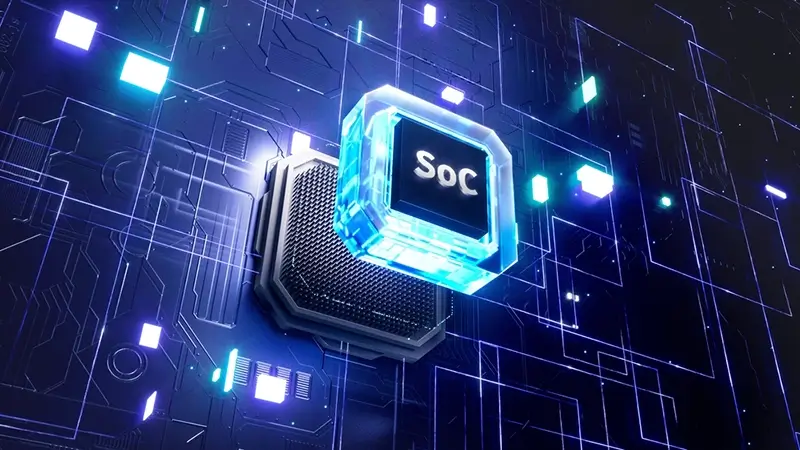Learn About the Features of BEAS Manufacturing
It's clear that the manufacturing industry comes with its fair share of operational hurdles, and a system that can streamline processes with...

Mexico is emerging as a hub that relies on technological trends and revolutionizes the way business innovation is achieved. In this article, we explain how and why the Mexican technology sector has evolved. We also highlight the five technologies that will experience the most growth in the coming months.
Mexico has become a key global player in technological developments. The combination of highly trained human talent and strategic government policies positions it as an attractive destination for foreign investors.
For example, in recent years, various initiatives have been promoted for the digital transformation of micro, small, and medium-sized enterprises (MSMEs). Among them, the Alliance for the Digital Transformation of MSMEs (MSMEs) aims to strengthen digital capabilities and facilitate modernization and competitiveness in the market.
Other examples aim to reduce the burden of procedures and regulatory obligations. These include the creation of the Digital Transformation and Telecommunications Agency and the National Plan for the Simplification of Procedures.
Likewise, the Mexican government has placed a special focus on managing public-private partnerships to promote business digitalization. In March 2025, the Mexican government and BBVA launched the "Avanzamos por México" (We Advance for Mexico) alliance. This seeks to improve the use of digital payments, providing financial tools and digital education to local tourism businesses.
This push laid the groundwork for current technological developments in sectors such as artificial intelligence (AI), software development, and digital transformation. This explains why many companies have relocated part of their operations to Mexico. This move also includes the execution of different phases for technological innovations.
Below, we share four key aspects of Mexico's attractiveness for the development of technological advances. These include its strategic geographic location (nearshoring) and its growth as a technology hub. The demands of Mexican companies, based on a specific model called Platform Engineering, also play a key role. Finally, we cannot forget the innovative potential of local startups.
>> Learn about our global expansion service for multinational companies
Many companies are moving part of their operations and processes to Mexico. They do so because of its competitive advantages, including its geographic proximity. This is a commercial strategy known as nearshoring. And Mexico has become fertile ground for its implementation.
According to a report by a specialized consulting firm, Mexico is the main destination for nearshoring in Latin America. This is due to its proximity to the United States, its network of trade agreements, and the competitive cost of its human talent.
This potential is reflected in the expansion of infrastructure, particularly logistics parks. These drive the adoption of advanced technologies and optimize supply chains.
Nearshoring is boosting key sectors, such as the automotive industry, where Mexico is consolidating its position as a hub for the production of autonomous and electric vehicles.
International trade specialists report that the country exported more than $5 billion in software services in 2023. Guadalajara is the largest hub of the knowledge economy. The city is consolidating its position as a key hub for software development.
This is a highly competitive region due to its talent and its proximity to the United States. Local and foreign startups coexist with large international companies. Its results are highlighted by the development of customized solutions and innovative applications.
This approach has become a key trend for businesses. It allows them to implement scalable architectures and automate processes to accelerate product delivery. This type of platform requires a data center, which will play a key role in the efficient management of digital resources.
Mexican companies are adopting platform engineering to modernize their operations, improve user experience, and make better decisions.
Incubators and accelerators located in Guadalajara and Monterrey connect startups with global investors. This has led to an ecosystem focused on fintech, e-commerce, and artificial intelligence (AI), including generative AI.
Improvements in automated analysis and decision-making, along with advances in security, traceability, and trust, enable a more interconnected digital ecosystem. This allows for progress on essential developments, such as the search for alternative energy sources, among other needs of today's world. Below, we describe the technologies Mexican developers will be focusing on in the coming months.
In 2024, companies consolidated their adoption of Generative Artificial Intelligence, and the trend will continue to rise in the coming months. However, advances in business automation will follow two paths of incredible potential.
Hand in hand with machine learning, the widespread adoption of robots for repetitive and monotonous tasks will become more efficient. This will offer companies the ability to free employees from routine tasks. Assembly, logistics, and customer service are some of the initial tasks to be included.
On the other hand, in the coming months, we will see an incredible evolution of quantum computing. This technology offers disruptive solutions to current technological challenges. For example, it can strengthen security or provide material simulation for the design of new products. Quantum computing can improve supply chain processes or assist with research and development in complex sectors, such as the pharmaceutical industry.
Blockchain is a technology that has evolved beyond its initial role in cryptocurrencies. Today, it has changed the way we trust and conduct transactions. One example of its impact is Decentralized Finance (DeFi), i.e., lending, exchanges, and financial services without intermediaries.
Blockchain technology is also being applied in areas such as supply chain management, electronic voting, and identity authentication. In the supply chain, for example, it provides transparency and traceability, ensuring greater efficiency and reducing the possibility of fraud.
The Internet of Things (IoT) is transforming various industries, including manufacturing, healthcare, and logistics. According to the International Data Corporation (IDC), Mexico is leading the adoption of this technology in Latin America, with an impressive annual growth rate of 15% in recent years.
This advancement can be attributed to the deployment of the 5G network, which solidified its connectivity in 2024. The network is now available in over 125 Mexican cities, enabling advanced applications in education, healthcare, and manufacturing.
The 5G network not only allows for faster browsing but also facilitates quicker data transmission. Its capabilities work exceptionally well with IoT, as it enhances connectivity between various electronic devices, such as security assistants, Google Home, and Alexa.
In the energy sector, efforts continue to improve technology that allows for the use of alternative sources, such as wind and solar. In the short and medium term, progress will be made with the implementation of automated systems to measure and monitor air and soil quality. These technologies are capable of reporting data in real time and allow for a faster and more effective response to environmental challenges.
Although they have been most successful so far in the entertainment sector, these technologies will also evolve other businesses. With its ability to fully immerse oneself in virtual worlds, Virtual Reality will also transform the training and therapy sectors. The possibility of immersive experiences will change the way we interact with technology and with each other.
For its part, Augmented Reality will enrich the world with digital information. Its innovative applications will impact medicine, architecture, and education. This technology allows real-time data visualization during complex processes, such as surgery. These tools also make it possible to explore architectural designs before construction or learn interactively in enhanced educational environments.
Of course, the list of these technologies is endless. We all have more devices that make our daily tasks easier. Without a doubt, the most used are smartphones, which have become an extension of ourselves. These devices allow us to access all types of information, communicate, and perform a wide range of tasks from anywhere.
Hand-in-hand with smartphones, social media is the platform that complements our communication with the world. Facebook, Twitter, and Instagram, among others, have created new forms of social connectivity and have influenced politics, culture, and global communication.
Technological advancements are propelling Mexico's economic growth, particularly in the creation of skilled jobs in fields like software development, cybersecurity, and data analysis. However, this positive trend could be further enhanced by addressing several challenges. Key areas for improvement include bridging the digital divide in rural regions, increasing investment in technical education, and strengthening cybersecurity measures.

It's clear that the manufacturing industry comes with its fair share of operational hurdles, and a system that can streamline processes with...

With the continued shift to digital banking and the rise of fintech are we seeing the inevitable demise of traditional brick and mortar FIs? Not...

Users are becoming increasingly mobile and networks are migrating to the cloud. This trend requires companies to have security controls capable of...